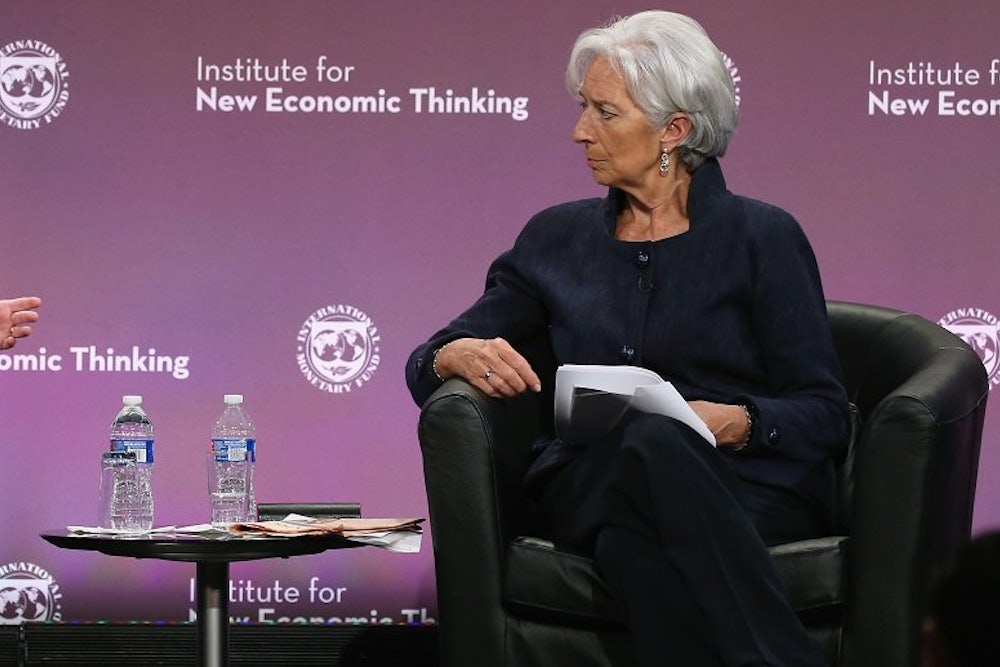At the International Monetary Fund on Wednesday, the Institute for New Economic Thinking hosted a conference on the health of the financial system in the aftermath of the Great Recession. The event brought together some of the most important people in finance—academic experts and financial regulators who are well-known throughout the industry. They had disparate views of regulatory policies implemented by governments during the past few years. Maybe the one thing they all shared in common: They were all women.
The conference began Tuesday night with a dinner in New York City; Massachusetts Senator Elizabeth Warren was the keynote speaker. On Tuesday in Washington, D.C., Federal Reserve Chair Janet Yellen and IMF managing director Christine Lagarde opened the morning with remarks about the industry and then questioned each other for nearly 45 minutes. Other participants later in the day included Esther George, the president of the Kansas City Fed; Sharon Bowen, the chairperson of the Commodity Futures Trading Commission; and Sarah Bloom Raskin, the Deputy Treasury Secretary and former Fed governor. Journalists moderating panels included the Washington Post’s Catherine Rampell, Time’s Rana Foroohar, and the Financial Times’ Gillian Tett.
While the star-studded event is clearly representative of the increasing role of women in the financial industry, notably absent were women leaders of major banks. Kat Taylor, the co-CEO of Beneficial State Bank, a community development bank in Oakland, California, was the only panelist who is an executive at a private financial institution. This isn’t a reflection on the Institute for New Economic Thinking, which George Soros founded in 2009. While women now play prominent roles in many financial regulatory positions, men still dominate the private sector. The Wall Street Journal in February used Federal Reserve data to examine the top 30 federal lenders in the United States by assets and found that not a single bank had a female CEO. “Many of those firms have never had a female top executive,” the story stated, “though quite a few have had women running units or serving as chief financial officer.”
In her remarks, Christine Lagarde noted the gender disparity in the executive roles in the financial industry. “In a worldwide sample of banks,” she said, “less than 20 percent of board members are women, and only 3 percent of bank CEOs are women.” Lagarde’s speech was mainly about how to align incentives in the industry such that bankers take actions that benefit society and don't take undue risk. One way of doing that, Lagarde noted, would be to put more women in charge of banks. Studies have shown that companies run by female CEOs have less leverage and are less volatile than companies run by their male counterparts.
“You may be familiar with a question I have posed in the past” Lagarde added. “What would have happened if Lehman Brothers had been Lehman Sisters?” It’s a good question.
